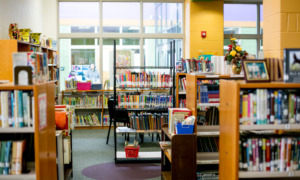
The federal funding stream for after-school was not renewed in the latest rewrite of “No Child Left Behind.”
A federal after-school program hangs in limbo as the Senate education committee forges ahead to rewrite “No Child Left Behind” — but supporters of the program expect action next week.
Leaders of the education committee announced a bipartisan bill on Tuesday that would change the use of federal standardized testing as set up under President George W. Bush. It would shift decisions about how to use the tests to each state.
However, the federal funding stream for after-school was not renewed in the bill. The 21st Century Community Learning Centers grant program, which serves mostly low-income children in 11,400 centers across the nation, would see its funding shifted to state block grants that could be used for additional purposes.
The next step
After-school advocates did not appear fazed. They expect 21st Century funding to be addressed in committee next week.
A bipartisan amendment is expected, said Erik Peterson, vice president for policy of the Afterschool Alliance, which seeks to ensure children’s access to affordable after-school programs.
Lamar Alexander (R-Tenn.), chairman of the Senate Health, Education, Labor and Pensions Committee, and ranking member Patty Murray (D-Wash) announced their draft education bill after weeks of working toward agreement. Alexander had proposed his own bill earlier in the year, but then negotiated with Murray to draft a second.
The bill continues to mandate tests for math and reading in third through eighth grades, “but restores to states, local school districts, teachers, and parents the responsibility for deciding what to do about improving student achievement.” Alexander said in a statement.
“It should produce fewer and more appropriate tests,” he said.
The bill will be marked up in committee on April 14. The process could last three to four days, according to Peterson.
More at the core
The draft bill also added to the subjects considered as “core.” including writing, music, computer science, technology, and physical education. The National Association for Music Education hailed the bill for including music, calling it “unprecedented.”
The Afterschool Alliance has said that a large body of evidence shows important benefits of after-school programs.
“Research shows afterschool programs help increase school day attendance, improve grades, narrow the achievement gap and contribute to social and emotional well-being,” wrote executive director Jodi Grant in a recent blog.
She pointed to a new study from Deborah Vandell at the University of California-Irvine School of Education, which found that after-school programs are as valuable as early childhood programs in aiding reading and math achievement.
































